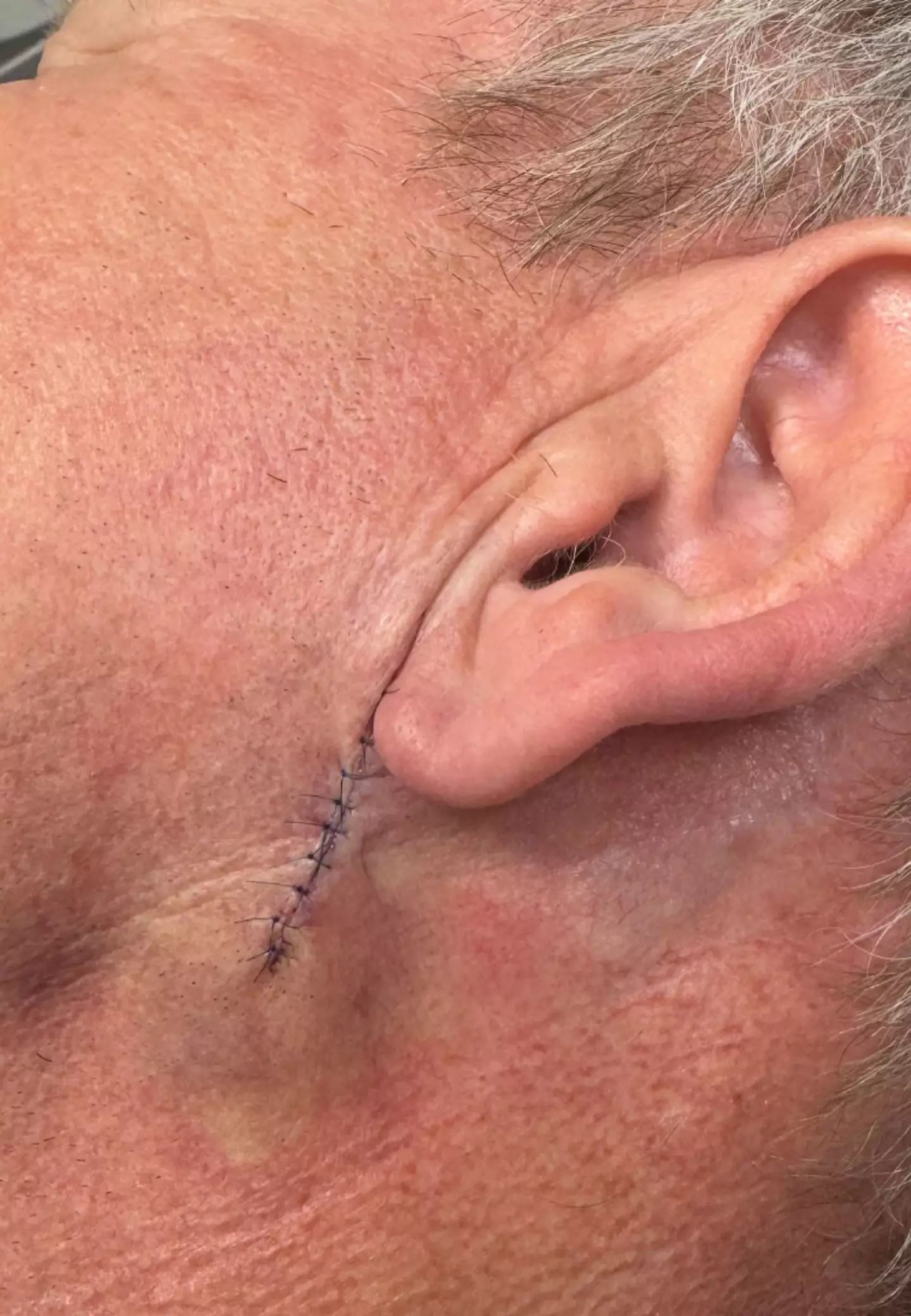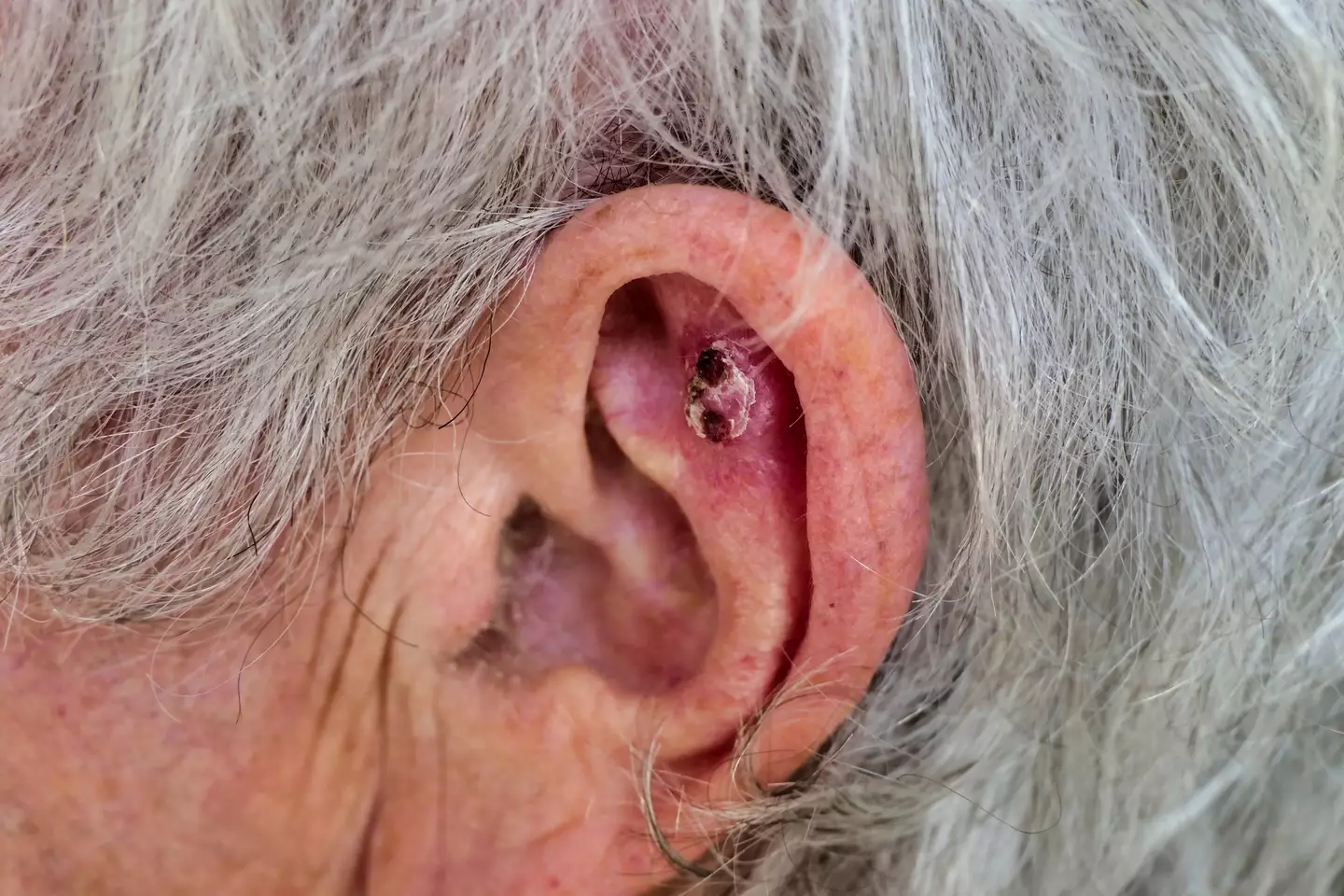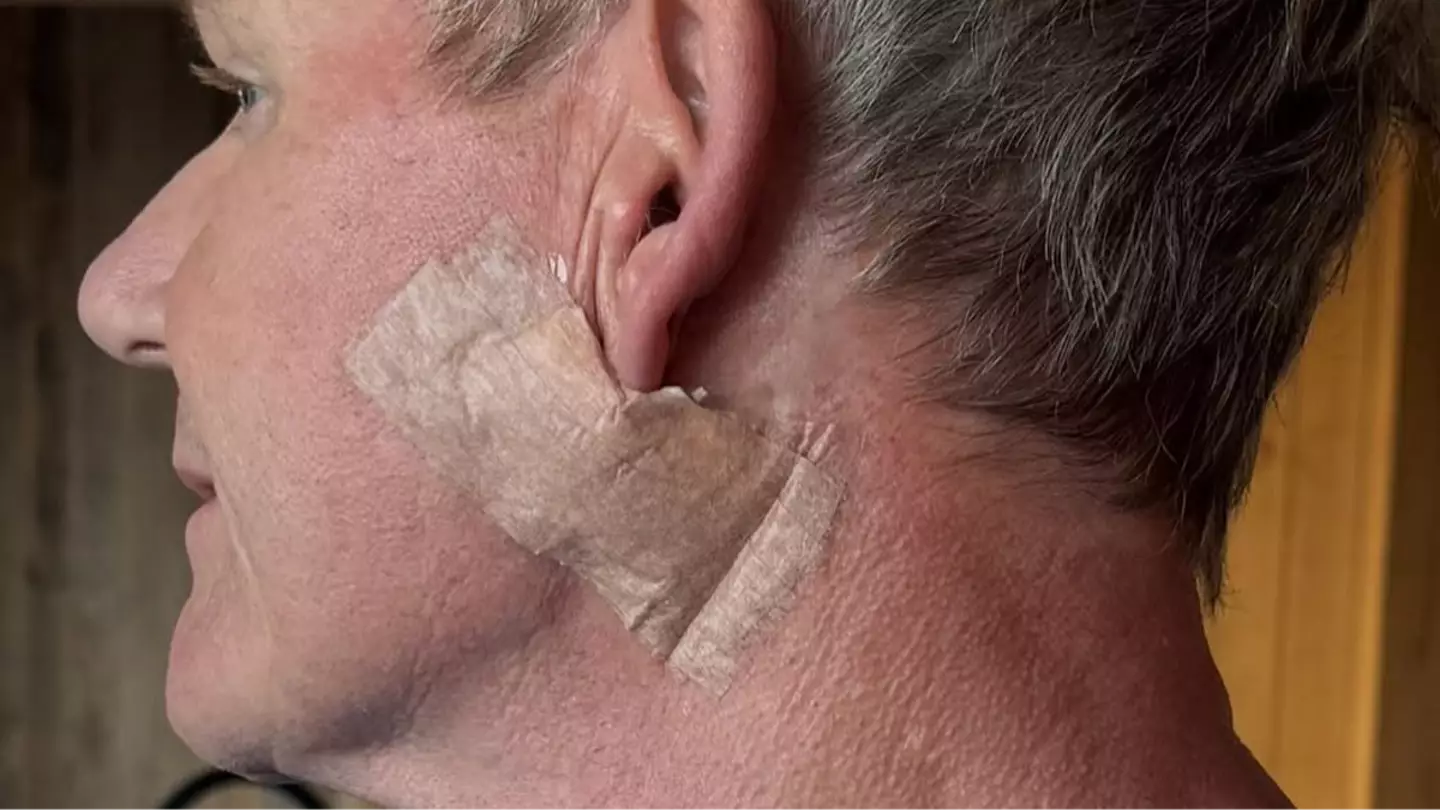Gordon Ramsay recently alerted his followers after disclosing that he had basal cell carcinoma.
On August 30, the well-known chef used Instagram to post pictures showing the scars from his surgery following a skin cancer diagnosis.
One image displayed Ramsay with a bandage under his left ear, and another revealed the stitches from where the cancerous area was removed.
“Grateful and so appreciative for the incredible team at The Skin Associates and their fast reactive work on removing this Basal Cell Carcinoma thank you,” wrote the 58-year-old alongside the images.
He then urged his 19 million followers: “Please don’t forget your sunscreen this weekend.”
Ramsay reassured his fans that he hadn’t had a facelift, humorously adding that he’d ‘need a refund’ if he had.

Basal cell carcinoma originates in the basal cells, which are skin cells that replace old ones as they die, according to Mayo Clinic.
The Skin Cancer Foundation notes that basal cell carcinoma is the most prevalent form of skin cancer, with approximately 3.65 million cases identified annually in the U.S.
This type of cancer often develops on skin areas frequently exposed to sunlight, though it can appear anywhere on the body.
The Skin Cancer Foundation advises vigilance for certain signs: a persistent open sore, a reddish or irritated skin patch, a glossy bump or nodule that appears pearly or clear, pink, red, or white, a small pink growth, and/or a scar-like area.
Having two or more of these symptoms may indicate a basal cell carcinoma tumor.

Reducing ultraviolet ray exposure is essential in preventing the development of basal cell carcinoma.
The American Cancer Society recommends wearing protective clothing, applying sunscreen, and using a hat and sunglasses for sun protection.
They advise against tanning beds and sun lamps due to the risk of long-term skin damage.
For children, who often spend a lot of time outdoors, the organization suggests: “Parents and other caregivers should protect children from excess sun exposure by using the steps above. Children also need to be taught about the dangers of too much sun exposure as they become more independent.”
If these concerns affect you and you wish to speak with someone confidentially, the American Cancer Society can be reached at 1-800-227-2345 or through their live chat feature, available 24/7 every day of the year.

